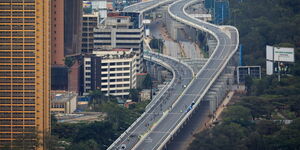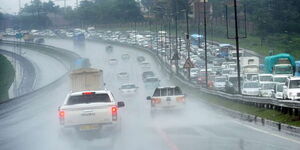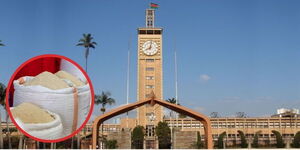City residents could be set for hefty penalties for intentionally blocking county officials from accessing their water meters if a proposal by Nairobi governor Johnson Sakaja comes to fruition.
Sakaja appeared before the Senate County Public Investment and Special Funds Committee on Monday, July 21 where he proposed the introduction of penalties targeting city residents who deny acess to water meters in a move aimed at improving efficiency and curbing revenue losses for the Nairobi City Water and Sewerage Company (NCWSC).
The governor noted that meter readers faced challenges, among them was acessing meters in residential homes mainly because homeowners are mostly away.
In the event a housekeeper is present at the compound, Sakaja claims that they are typically under strict instructiions not to allow entry, further hampering the meter reading process.
“In some estates, our teams are denied access to meters. This is interfering with accurate billing and planning,” Sakaja stated.
He added, “We are now considering introducing penalties for individuals who knowingly obstruct water meter access.”
To further address the issue long-term, the governor also revealed that his government was exploring smart water meters which offer better accuracy and remote reading capabilities.
The kicker, however, is that unlike the conventional meters which cost around Ksh3,500, the smart meters go for Ksh15,000.
With this in mind, Sakaja acknowledged that adopting smart meters would require careful budgeting and the implementation would have to take place in phases.
In addition, Sakaja also revealed Nairobi Water was in the process of relocating water meters outside of residential gates to ease access for their staff.
Customers are also being sensitised via text messages to enable them to self-read and report meter readings, particularly in the event meter readers are denied access.
Nahashon Muguna, the NCWSC Managing Director, was also present before the committee on Monday and estimated that approximately 15,000 out of Nairobi’s 250,000 meters remain unread every month due to restricted access, leading to losses in millions.
“Our teams do their best, but we are often blocked from entering certain homes. This is especially common when house helps are instructed not to open the gate,” Muguna decried.
Another persistent challenge for the water utility company has been unpaid bills, particularly from public institutions such as schools. As disconnecting water to public institutions was not a viable option, these institutions have accumulated mounting arrears.
Interestingly, despite the challenges, Nairobi Water recorded its highest-ever revenue collection in the just concluded financial year, hitting the Ksh11.7 billion mark, which was a considerable jump from Ksh10.75 billion in 2023/2024 and Ksh9.46 billion in 2022/2023.












